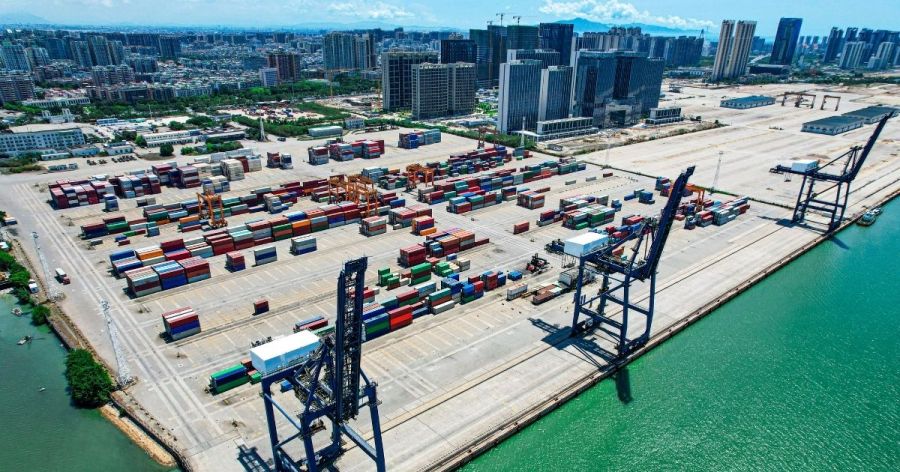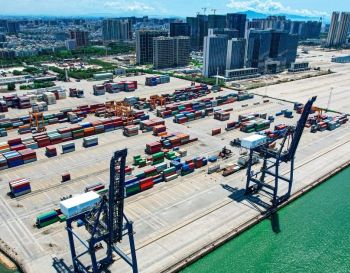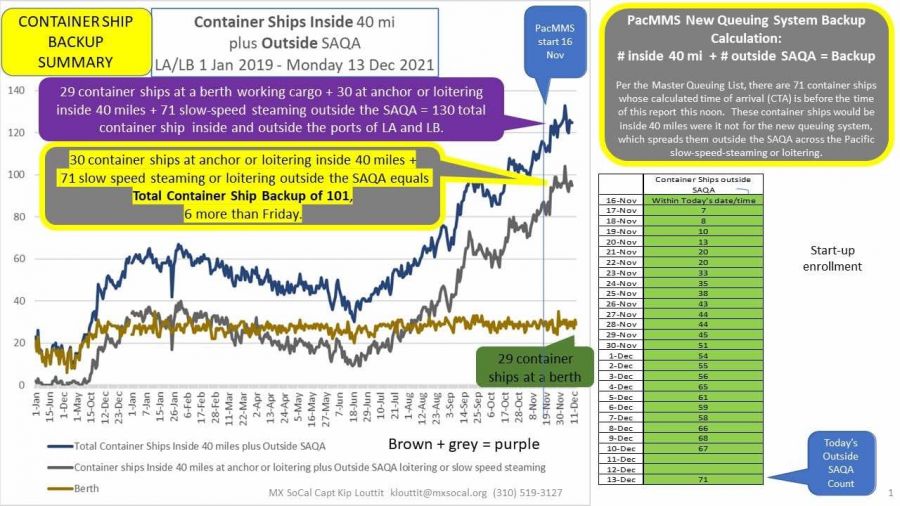Increased sea freight rates threaten global economic recovery, says UN agency
The United Nations Conference on Trade and Development (UNCTAD) reported that import prices may increase by 11% internationally and consumer prices by 1.5% by 2023.
"Consumer prices will grow significantly next year until disruptions in commodity supply chains are unblocked, and congestion at ports and terminals is resolved," the UNCTAD said.
Global supply chains have faced unprecedented demand since the second half of 2020 as consumers shifted to spending on goods rather than services during the confinements caused by the Covid-19 pandemic.
"The pandemic emphasized the importance of ensuring the continuity of supply chains and the need to become more resilient, responsive and agile. The recovery in trade, combined with pandemic-induced constraints on logistics operations, has led to equipment and container shortages, congested ports, and longer delays and dwell times," the UNCTAD said.
At the same time, this saturation has led to record freight prices "on virtually all container trade routes," the agency's report points out.
"The rise in freight rates will have a profound impact on trade and undermine socioeconomic recovery, especially in developing countries," the agency's Secretary-General Rebeca Grynspan warned.
Consumer prices are expected to rise 7.5 percent in developing States and 2.2 percent in less developed countries, above the 1.5 percent increase expected globally.
The UNCTAD notes that the pandemic has magnified the industry's previous problems, such as labor shortages or gaps in infrastructure, and also exposed its vulnerabilities. This adds to concerns about the ongoing health crisis-induced crisis around crew changes, with blockades, border closures, and lack of international flights.
Even so, the pandemic's impact on maritime trade has been less than initially predicted. In 2020, it recorded a 3.8% contraction, but should grow by 4.3% in 2021.
The agency predicts an average annual advance of 2.4% between 2022 and 2026, but warns of an "increase in risk and uncertainty."
The document also calls for accelerating vaccination among the total 1.9 million maritime crew members. Currently, only 41% of them are fully immunized.
Discussions about the future of globalization have led to calls for a new view of the role of extended supply chains and dependence on distant suppliers.
"Globalized production processes entail greater use of shipping, with intermediate products often crossing borders several times within and between regions. For example, this is the case for products from East Asia destined for important markets in North America and Europe.
For computers and electronic and optical products, for example, the consumer price rise induced by the freight rate increase could be as high as 11%. But lower-value goods may also be hit, with furniture, textiles and clothing likely to see a 10% increase in consumer prices.
"In the US and the euro area, for example, a 10% increase in container freight rates could lead to a cumulative contraction in industrial production of around 1%.
While the impact of this will be felt most acutely in smaller economies that rely on these goods, even in major economies, high freight costs and disruption to shipping threaten to undermine economic recovery, the UNCTAD said.
Sea freight delayed due to high congestion? Try the air service with AMTRANS. Our specialists will find the best option for you. Get a quote!
Sources:
https://www.lloydsloadinglist.com/freight-directory/news/Disrupted-supply-chains-threaten-global-recovery/80374.htm?cl=article_2&elqTrack=true&mc_cid=ad970222d9&mc_eid=8e4f1ebb96#.YZ0XVKZKiUk
https://www.terra.com.br/economia/aumento-do-frete-maritimo-pode-prejudicar-recuperacao-economica-global-diz-agencia-da-onu,58f7aafc1c56bc780ac66aaad2e6ecdbd2j8bmtf.html
https://www.istoedinheiro.com.br/onu-alerta-para-aumento-de-precos-em-2022-por-custos-do-frete-maritimo/
https://valor.globo.com/impresso/noticia/2021/11/19/frete-maritimo-mais-caro-ameaca-retomada-global.ghtml



 Everything you need to know about Ad Valorem
Everything you need to know about Ad Valorem  Yes, you have just found your AEO certified brazilian agent
Yes, you have just found your AEO certified brazilian agent 

